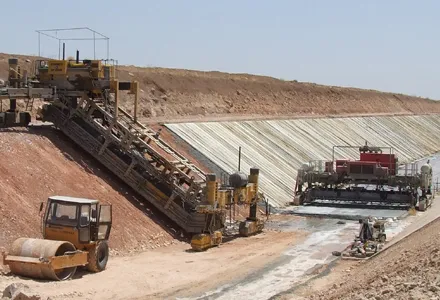The DRR has the responsibility for over 47,700km of Thailand’s 396,600km road network, upgrading paved and earth roads and delivering bridge projects. This is intended to boost social, economic and tourism related activities. The department is pushing ahead with improvements in the quality and consistency of highway construction. The DRR delegation says it is keen to understand how the UK agrees standards and certificates new and innovate highway construction products.
“If we don’t have the right standards local governments will use many products and the quality of these products will not be consistent,” Chakree Bamrumgwong, DRR director of Office of Road Safety Audit, explained. “Some will be good and some will be not so good so we want to standardise it. It is very useful to learn.”
The DRR now intends to work towards establishing a scheme similar to HAPAS: “The DRR needs to set up a highways material standard like HAPAS for the quality control of the material and products used in Thailand’s rural and local roads. We learned a lot about the HAPAS system and other useful information, all of which supports our thinking to do more for the future,” said Mr Bamrumgwong.
The DRR has a 10 year plan to centralise and standardise highways specifications. At present it utilises predominantly American standards for highway product specification and design and, where they prove insufficient, looks to other international standards - including British Standards - to translate into its projects. The department also intends to take the lead on encouraging all agencies involved in the Thai road network to collaborate in a further move to drive up product and safety standards.
While in the UK, the DRR representatives also visited the Department for Transport’s Local Transport Group,
Thailand road development planning
A group of experts from Thailand have been visiting the UK to research methods that would help boost road development. The planning and engineering team from Thailand’s Department of Rural Roads (DRR) have been holding meetings with UK counterparts about adopting a scheme similar to its Highways Authority Approval Scheme (HAPAS).
The DRR has the responsibility for over 47,700km of Thailand’s 396,600km road network, upgrading paved and earth roads and delivering bridge projects. This is intended to boost so
May 2, 2019
Read time: 3 mins
A group of experts from Thailand have been visiting the UK to research methods that would help boost road development. The planning and engineering team from Thailand’s Department of Rural Roads (DRR) have been holding meetings with UK counterparts about adopting a scheme similar to its Highways Authority Approval Scheme (HAPAS).







